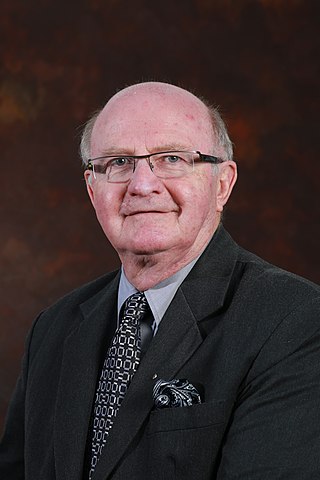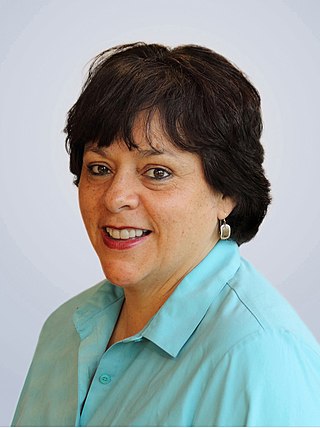Related Research Articles

Sir Ronald Ross was a British medical doctor who received the Nobel Prize for Physiology or Medicine in 1902 for his work on the transmission of malaria, becoming the first British Nobel laureate, and the first born outside Europe. His discovery of the malarial parasite in the gastrointestinal tract of a mosquito in 1897 proved that malaria was transmitted by mosquitoes, and laid the foundation for the method of combating the disease.

The London School of Hygiene and Tropical Medicine (LSHTM) is a public research university in Bloomsbury, central London, and a member institution of the University of London that specialises in public health and tropical medicine.
The Pirbright Institute is a research institute in Surrey, England, dedicated to the study of infectious diseases of farm animals. It forms part of the UK government's Biotechnology and Biological Sciences Research Council (BBSRC). The institute employs scientists, vets, PhD students and operations staff.

Sir William Ian Clunies Ross CMG was an Australian veterinary scientist. He has been described as the 'architect' of Australia's scientific boom, for his stewardship of the Commonwealth Scientific and Industrial Research Organisation (CSIRO), the Australian scientific organisation.

WEHI, previously known as the Walter and Eliza Hall Institute of Medical Research, and as the Walter and Eliza Hall Institute, is Australia's oldest medical research institute. Sir Frank Macfarlane Burnet, who won the Nobel Prize in 1960 for his work in immunology, was director from 1944 to 1965. Burnet developed the ideas of clonal selection and acquired immune tolerance. Later, Professor Donald Metcalf discovered and characterised colony-stimulating factors. As of 2015, the institute hosted more than 750 researchers who work to understand, prevent and treat diseases including blood, breast and ovarian cancers; inflammatory diseases (autoimmunity) such as rheumatoid arthritis, type 1 diabetes and coeliac disease; and infectious diseases such as malaria, HIV and hepatitis B and C.

Lorne Allan Babiuk, is a Canadian scientist specializing in immunology, pathogenesis, virology, molecular virology, and vaccinology. He is the Vice-President of Research at the University of Alberta and the former Director of the Vaccine and Infectious Disease Organization at the University of Saskatchewan. Dr Babiuk holds the Canada Research Chair in Vaccinology and Biotechnology and is Chair of the Board for Pan-Provincial Vaccine Enterprise (PREVENT), a vaccine development company.

The Roslin Institute is an animal sciences research institute at Easter Bush, Midlothian, Scotland, part of the University of Edinburgh, and is funded by the Biotechnology and Biological Sciences Research Council.
Elizabeth Simpson OBE FRS FMedSci is a British biologist. She is the Emeritus Professor of Transplantation Biology at Imperial College London. Simpson is particularly known for her elucidation of the nature of male-associated minor transplantation antigens, and their roles in the generation of immunological tolerance, graft versus host disease, and transplant rejection.

Sarah Cleaveland is a veterinary surgeon and Professor of Comparative Epidemiology at the University of Glasgow.

Lalita Ramakrishnan is an Indian-born American microbiologist who is known for her contributions to the understanding of the biological mechanism of tuberculosis. As of 2019 she serves as a professor of Immunology and Infectious Diseases at the University of Cambridge, where she is also a Wellcome Trust Principal Research Fellow and a practicing physician. Her research is conducted at the MRC Laboratory of Molecular Biology, where she serves as the Head of the Molecular Immunity Unit of the Department of Medicine embedded at the MRC LMB. Working with Stanley Falkow at Stanford, she developed the strategy of using Mycobacterium marinum infection as a model for tuberculosis. Her work has appeared in a number of journals, including Science, Nature, and Cell. In 2018 and 2019 Ramakrishnan coauthored two influential papers in the British Medical Journal (BMJ) arguing that the widely accepted estimates of the prevalence of latent tuberculosis—estimates used as a basis for allocation of research funds—are far too high. She is married to Mark Troll, a physical chemist.

Christl Ann Donnelly is a professor of statistical epidemiology at Imperial College London, the University of Oxford and a Fellow of St Peter's College, Oxford. She serves as associate director of the MRC Centre for Global Infectious Disease Analysis.
Francisca Mutapi is a Professor in Global Health Infection and Immunity, co-Director of the Global Health Academy at the University of Edinburgh, and Deputy Director of the National Institute for Health Research (NIHR) Global Health Research Unit Tackling Infections to Benefit Africa. She is the first black woman known to have been awarded a professorship by the University of Edinburgh.

Carolina Barillas-Mury is the chair of the Mosquito Immunity and Vector Competence Section and Director of the Malaria Research Program at the National Institute of Allergy and Infectious Diseases of the National Institutes of Health. She studies how mosquitos transmit diseases like malaria, and in recognition of her research, she has been elected to the National Academy of Sciences.
Irma Gigli is an emeritus professor at the University of Texas Health Science Center at Houston, and the Walter & Mary Mischer Distinguished Professor in Molecular Medicine, Hans J. Müller-Eberhard Chair in Immunology, and Director Emeritus of the IMM Center for Immunology & Autoimmune Diseases.
Kathryn "Kat" Elizabeth Holt is an Australian computational biologist specializing in infectious disease genomics. She is a professor at Monash University's Department of Infectious Diseases and a professor of Microbial Systems Genomics at the London School of Hygiene & Tropical Medicine (LSHTM). Her current research focuses on investigating the evolution and dissemination of antimicrobial resistance. In 2015, Holt received the L'Oréal-UNESCO International Rising Talent Award.

Gao Fu, also known as George Fu Gao, is a Chinese virologist and immunologist. He served as Director of the Chinese Center for Disease Control and Prevention from August 2017 to July 2022 and has been Dean of the Savaid Medical School of the University of Chinese Academy of Sciences since 2015.
Elizabeth Lucy Corbett is a British epidemiologist who is Professor of Tropical Epidemiology at the London School of Hygiene & Tropical Medicine. Her research investigates the regulation of tuberculosis in HIV prevalent populations and improving access to HIV self-testing.
Lee Berger, is an Australian biologist and veterinarian, who discovered during her PhD that the fungus Batrachochytrium dendrobatidis was responsible for the decline and extinction of hundreds of amphibian species.

Kevin Marsh is a British Malariologist, academic and a researcher. He is a Professor of Tropical Medicine and Director of Africa Oxford Initiative at University of Oxford. He is also a senior advisor at African Academy of Sciences.
Professor Ronald John Roberts, CCT FRCVS FRCPath FRSE is a Scottish veterinary pathologist who pioneered the study of fish diseases. He was Foundation President of the World Association for Aquatic Animal Medicine 2010/11.
References
- 1 2 "Eleanor Riley | Veterinary Vaccinology Network". www.vetvaccnet.ac.uk. Retrieved 5 April 2019.
- ↑ Riley, E. M. (1985). The immunology of experimental Echinoccus granulosus infection in mice (Ph.D. thesis). University of Liverpool.
- 1 2 3 Stephen, Phyllis (16 February 2017). "The Roslin Institute appoints new head". The Edinburgh Reporter. Retrieved 7 April 2019.
- 1 2 ELIZABETH, CONNAUGHTON (2 March 2017). "Professor Eleanor Riley has been appointed the new Director of the Roslin Institute". The Student. Retrieved 5 April 2019.
- ↑ "15 February 2017 - Professor Eleanor Riley appointed to lead The Roslin Institute". bbsrc.ukri.org. Retrieved 5 April 2019.
- ↑ "Professor Eleanor Riley | The Academy of Medical Sciences". acmedsci.ac.uk. Retrieved 5 April 2019.
- ↑ "Leading medical expert recognised for excellence in research". LSHTM News. 9 May 2014. Retrieved 5 April 2019.
- ↑ Devlin, Hannah (17 March 2018). "Scientists on brink of overcoming livestock diseases through gene editing". The Guardian. ISSN 0261-3077 . Retrieved 5 April 2019.
- ↑ "The Director of The Roslin Institute". The University of Edinburgh. Retrieved 5 April 2019.
- ↑ "Eleanor Riley named director at institute responsible for Dolly the sheep". The National. Retrieved 5 April 2019.
- ↑ "The Roslin Institute receives Athena SWAN Gold award". The University of Edinburgh. Retrieved 7 April 2019.
- ↑ tmg (21 January 2018). "2018 International Day of Women and Girls in Science public lecture". Equality and diversity. Retrieved 7 April 2019.
- ↑ "Ronald Ross Medal". LSHTM. Retrieved 7 April 2019.
- ↑ "Roslin Director is awarded the Ronald Ross medal". The University of Edinburgh. Retrieved 7 April 2019.
- ↑ Macaskill, Mark. "'Marginalised' Roslin director quits post". The Times . ISSN 0140-0460 . Retrieved 25 February 2020.
- ↑ Stephen, Phyllis (29 March 2021). "New 2021 fellows of the Royal Society of Edinburgh". The Edinburgh Reporter. Retrieved 22 November 2021.
- ↑ "No. 64082". The London Gazette (Supplement). 17 June 2023. p. B10.